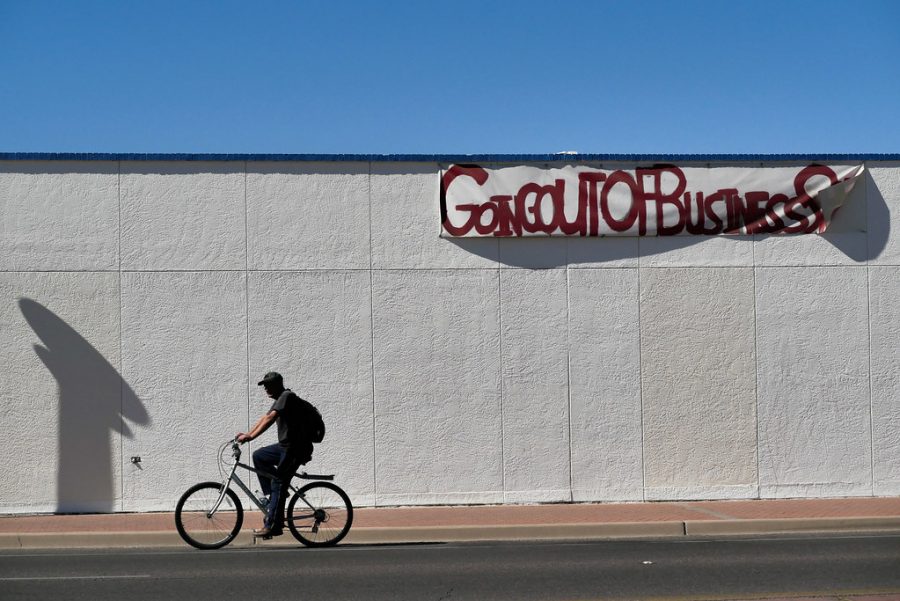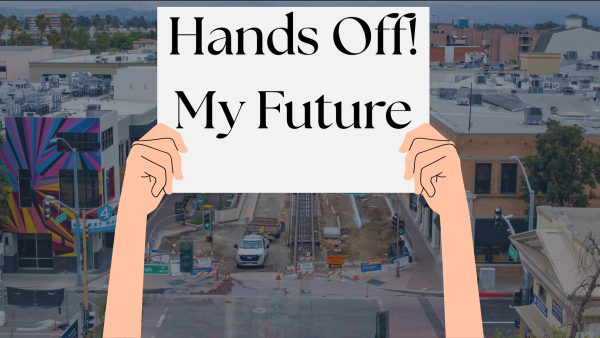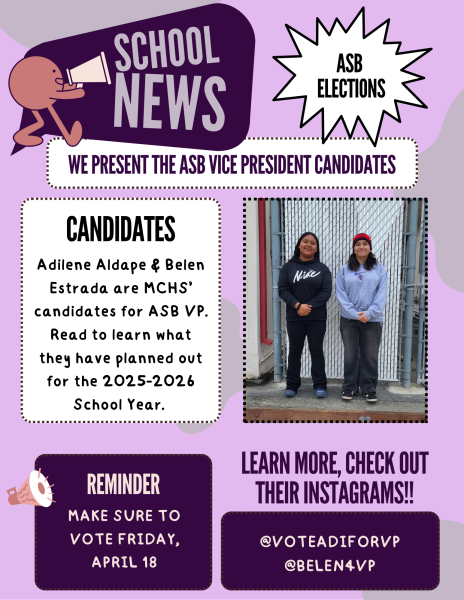Covid-19 is changing the economic landscape
The coronavirus has proven fatal to both physical and economic health.
Families across all of America are currently struggling to keep afloat financially due to the coronavirus pandemic. Many have been forced to cut costs and use up their emergency funds. Some have even lost their homes and possessions.
The unemployment rate has skyrocketed. The hospitality industry has crashed. The USA is in the midst of an economic crisis, and the effects are being felt everywhere, from large corporations filing for bankruptcy to individuals losing their jobs.
At Middle College High School, an academic institution where 77% of the student population is from a low-income family, money has always been a sensitive issue. The coronavirus only serves to make it more alarming. The students that attend this school paint a vivid picture of how the general public has been financially affected by the pandemic.
When questioned about how his family was economically impacted, senior Thomas Piñon stated, “My dad does side work and he can’t do as much because of Covid-19, so we get less money. Also, we buy our grandpa food because he can’t go outside, so there’s more of a cost burden.”
Most of the students at MCHS who have remained financially unaffected by the coronavirus are the children of essential workers. During the pandemic, these individuals have been encouraged to keep working despite the dangers of Covid-19 due to the indispensable nature of their careers.
Junior Albert Huynh exemplified this and said, “Fortunately, my parents are still working since the pandemic didn’t affect their jobs. My mom is a nurse and my dad is a postal service carrier.”
Not too far from Middle College High School are multiple tourist destinations. These include the famous Disneyland amusement park, Six Flags, and Knott’s Berry Farm. All of these attractions are an excellent example of how the coronavirus has affected the tourism and hospitality industry.
Knott’s Berry Farm, for instance, canceled its traditional Halloween event, “Knott’s Scary Farm,” for the first time ever since its conception in 1979. “Bear-y Tales,” a new ride that was originally supposed to debut in the summer of 2020, has had its opening date pushed back indefinitely. The theme park as a whole is temporarily closed, with no tentative reopening day.
Six Flags hasn’t fared much better. Its Los Angeles location is also closed for an undetermined amount of time, and in other locations, the law-mandated customer capacity is about 25% of what it was in the pre-pandemic era.
The iconic Disneyland theme park has also faced challenges from Covid-19. Its Anaheim location, like most amusement parks in California, has been closed for an unspecified period of time. As of August of 2020, it is estimated that Disney has lost approximately $5,000,000,000 due to the closure of its parks, in both the Anaheim area and other locations.
It is unclear whether or not these attractions will be able to return to pre-pandemic revenues once they finally reopen. Factors such as the state of the pandemic will surely play an important role, as well as the willingness of the general public to expose themselves to the coronavirus.
When asked about whether or not he would attend an amusement park such as Disneyland if he were given a ticket, Huynh said, “I would accept the ticket and sell it on eBay. Let someone else get sick.”
Although intended to be humorous, Huynh’s statement highlights the wariness that many feel when confronted with the option to go to densely populated areas for entertainment during such a tumultuous era. If the pandemic isn’t over by the time the parks reopen, they could face problems such as legal restrictions and public backlash in addition to a decrease in interest. These issues hold true for most tourism destinations and businesses that specialize in hospitality, whether they be movie theaters or shopping malls.
Disneyland, Six Flags, and Knott’s Berry Farm, however, are all large corporations that have annual revenues in the billions. Their survival is nearly guaranteed, and a minor dip in profits probably won’t affect them too much. Unfortunately, other, more local organizations aren’t nearly as fortunate. The consequences of the coronavirus have been much more severe for them.
Hogan Nguyen, an employee at a small salon and nail bar, said, “Ever since the pandemic, there have been fewer customers. We’ve definitely been struggling to keep things running because of this.”
Local businesses don’t have the resources and connections that larger ones do. A single month of poor sales can lead to bankruptcy and permanent closure. The owners and employees are always at a higher risk of losing their jobs and becoming impoverished as a result. Being involved in such an organization can be risky, and the pandemic has made it worse. The United States government has even had to launch several relief programs to lessen the chances of losing the majority of America’s small businesses.
The economic impact of the coronavirus has been overwhelmingly negative. Both businesses and individuals are struggling to stay financially stable. During such a time of uncertainty, it is important to remember that other people are facing the same issues that you are. One day, hopefully, the economy will recover, and the pandemic will be nothing more than a thing of the past.

I can wiggle my ears, I love classical music, and I’ve never eaten a burger before.





































